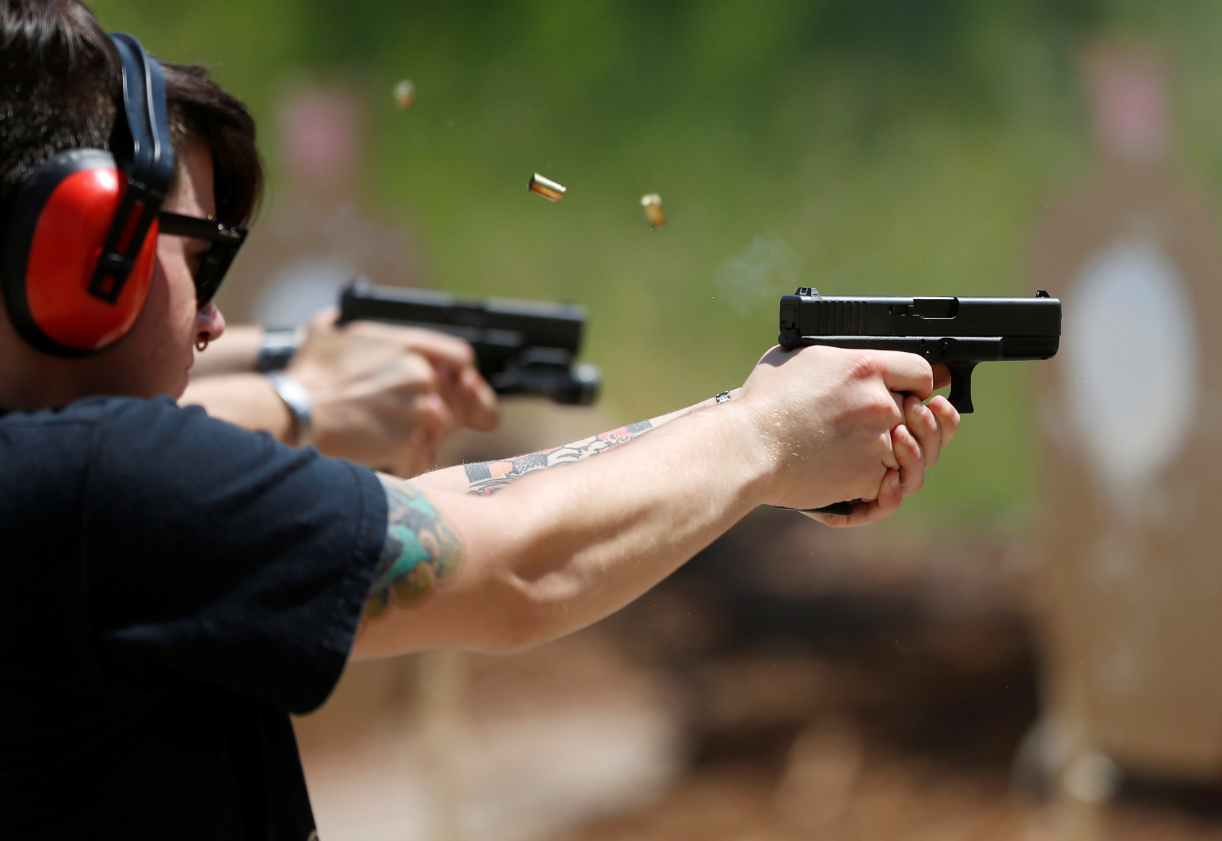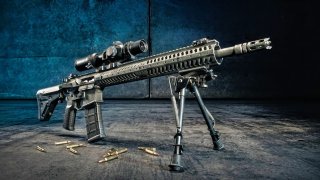400,000,000 Firearms: Why Gun Control In America Is Doomed
There are over 400 million guns in private hands in the U.S., making a ban impractical. Gun control advocates believe banning firearms would solve gun violence, but the reality is complex.
Summary and Key Points: Gun control advocates believe banning firearms would solve gun violence, but the reality is complex.
-There are over 400 million guns in private hands in the U.S., making a ban impractical.
-Gun violence is a serious issue, but focusing on mental health, enforcing existing laws, and addressing cultural violence is crucial.
-Banning guns would mainly punish law-abiding citizens, leaving criminals armed. The high number of firearms means that a buyback program is unlikely to succeed fully.
Why Gun Bans Won't Solve America's Gun Violence Epidemic
Supporters of gun control would have you believe that we could snap our fingers, ban guns, and that our problems would go away. Reality isn’t that simple. There are simply too many firearms in private hands.
Gun Control Will Always Fail – The Reason: There Are Too Many Guns
It seems like there is now a mass shooting every week, and Americans are increasingly fed up with it.
Parents are worried about their children’s safety at school, while others may fear that the next trip to the movies or the grocery store could be their last if a deranged gunman has their way.
Simply put, Americans have a right to be angry about gun violence.
As a matter of note, this reporter writes these words not as a supporter of gun control, but rather as a firearm owner who believes strongly in the Second Amendment.
This is important for me to state because, too often, gun control advocates simply argue that those who own guns don’t care that such violence is now commonplace.
Like every gun owner I know, I care deeply about this epidemic of gun violence, but I’m going to say the problem isn’t the guns.
It is the people who use them.
There are many factors in this, and to say it is solely an American problem is a great myth as noted by the fact that these events do occur all over the world.
What makes the American situation different is that we focus so much on it.
We give the shooters the moment in the spotlight that they crave.
Shooters are often marginalized individuals, angry at the world, but they take it out on the innocent. Even if they aren’t around to see the coverage in the media that always occurs in the aftermath of these events, they know it will come.
Why Gun Control Won’t Work
Following these shootings, there are always those who demand action.
The argument is that there are “too many guns,” but if that were true, we’d see even more shootings.
Yes, gang violence involving firearms in cities such as Chicago has increased, but that’s not a gun issue as much as it is a gang issue.
A lot of those firearms used are stolen or bought on the black market. That’s not going to change if guns were outlawed universally tomorrow.
The too many guns argument often addresses that there are more guns in Americans than there are actually American citizens. Supporters of the Second Amendment can flip this narrative to note that it also means there are a lot of law-abiding gun owners. A prohibition on firearms, even the so-called “assault weapons” – which are really not weapons of war despite what the president and others may proclaim – would only serve to punish the law-abiding.
Consider that while great efforts have been made to curb drunk driving, people are still getting DUIs. In 2021, 13,384 people died in alcohol-related incidents, while about 37 people in the United States are killed daily in drunk-driving crashes, or one person every 39 minutes according to the National Highway Traffic Safety Administration. We just don’t hear about those killed in such alcohol-related incidents, except when it is so shocking such as the recent woman who killed a bride on her wedding day. In other words, we’re numb to drunk driving-related deaths, even as it still accounts for 40 percent of all traffic-related fatalities!
That isn’t to say we should accept mass shootings any more than we accept that people are going to drink and drive – and now there are those concerns of people driving while high – but perhaps not making the shooters short-term celebrities would be a good step in solving the issue. Today’s mass shooters now have the notoriety of infamous pirates, gangsters, and serial killers.
A case in point is Stephen Paddock, the deranged individual who carried out the deadliest mass shooting in modern US history in Las Vegas in 2017. According to a recent report, a friend of his even worried that Paddock would carry out such an incident, yet failed to report it. For years, law enforcement and the media have pondered a motive – but isn’t it in plain sight? Paddock had apparently become angry at the system, and he wanted the world to know.
Gun control advocates argue that banning firearms would stop the next Paddock.
Yet, punishing more than 100 million law-abiding gun owners with a ban on firearms simply won’t work.
This isn’t to say that we should give up. We need to come to terms to address mental health issues; we need to enforce existing laws; and we need to punish those who break the laws. We also need to reduce the culture of violence that exists in movies, TV shows, music, and video games – too often Hollywood elites are the first to denounce such acts of violence, yet continue to churn out films that glamorize gun violence.
Too Many Guns?
The other part of the equation that there are “too many guns,” is how a prohibition could even work. Politicians such as former Texas Congressman Beto O’Rourke have called for a ban on semi-automatic rifles that would include those already in private hands.
Even if the government could offer a buy-back – and how it would be paid for – there is the issue of whether all Americans would agree to it. Of course, it could be argued that is part of the plan. Those who didn’t agree to give up their guns would be guilty of committing a felony, which would mean they wouldn’t be able to own guns.
Yet, we still would have to ask whether all Americans would comply.
There are around tens of millions, perhaps as many as 50 million semi-automatic rifles that could be subject to a ban if gun control advocates had their way. It is also unlikely the efforts would stop there, as the next step would be all handguns. This would then result in hundreds of millions of firearms being banned.
If even 10 percent weren’t turned in, that would still leave a massive number of guns that would be in the hands of criminals – anyone who didn’t comply would become a de facto criminal after all – while the law-abiding would be disarmed. Moreover, even if only a fraction of those guns were still used for ill intent, it would mean more than one million, and perhaps as many as five million, illegal guns in the hands of those who would commit robberies, murder, and other crimes.

Supporters of gun control would have you believe that we could snap our fingers, ban guns, and that our problems would go away. Reality isn’t that simple. There are simply too many firearms in private hands.
Gun violence is a problem, one that we do need to address – but a ban won’t work. There are simply too many firearms owned by Americans. Then there is the point that any calls to ban guns only lead to a spike in sales. Besides the point of punishing the innocent, there is simply no way to recover all the guns out there anyway.

If guns are outlawed, only outlaws will have guns – such a sentiment is why bans are feared, and that’s unlikely to change anytime soon.
Author Experience and Expertise: Peter Suciu
Peter Suciu is a Michigan-based writer. He has contributed to more than four dozen magazines, newspapers, and websites with over 3,200 published pieces over a twenty-year career in journalism. He regularly writes about military hardware, firearms history, cybersecurity, politics, and international affairs. Peter is also a Contributing Writer for Forbes and Clearance Jobs.
All images are Creative Commons.


